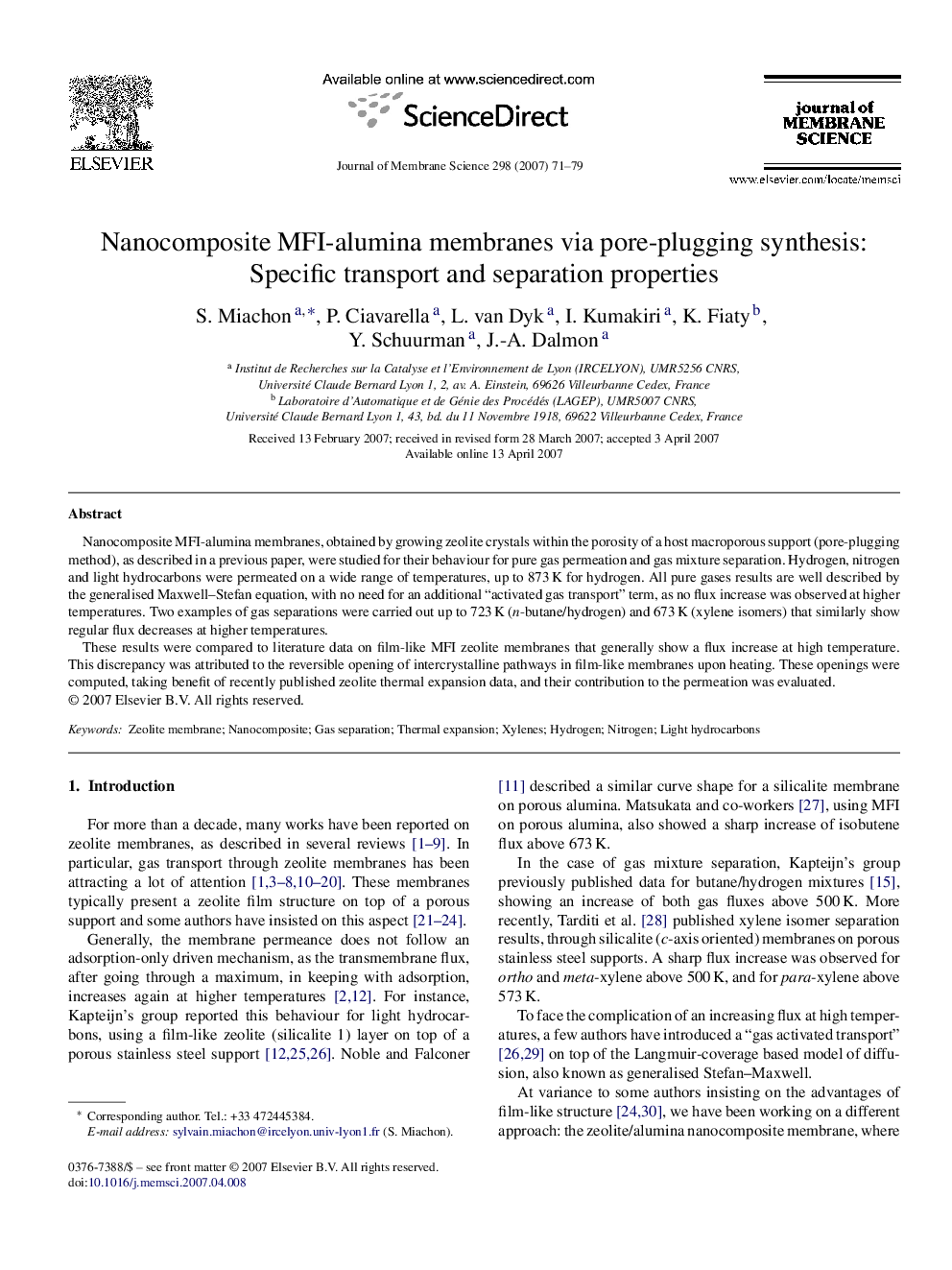| Article ID | Journal | Published Year | Pages | File Type |
|---|---|---|---|---|
| 638623 | Journal of Membrane Science | 2007 | 9 Pages |
Nanocomposite MFI-alumina membranes, obtained by growing zeolite crystals within the porosity of a host macroporous support (pore-plugging method), as described in a previous paper, were studied for their behaviour for pure gas permeation and gas mixture separation. Hydrogen, nitrogen and light hydrocarbons were permeated on a wide range of temperatures, up to 873 K for hydrogen. All pure gases results are well described by the generalised Maxwell–Stefan equation, with no need for an additional “activated gas transport” term, as no flux increase was observed at higher temperatures. Two examples of gas separations were carried out up to 723 K (n-butane/hydrogen) and 673 K (xylene isomers) that similarly show regular flux decreases at higher temperatures.These results were compared to literature data on film-like MFI zeolite membranes that generally show a flux increase at high temperature. This discrepancy was attributed to the reversible opening of intercrystalline pathways in film-like membranes upon heating. These openings were computed, taking benefit of recently published zeolite thermal expansion data, and their contribution to the permeation was evaluated.
